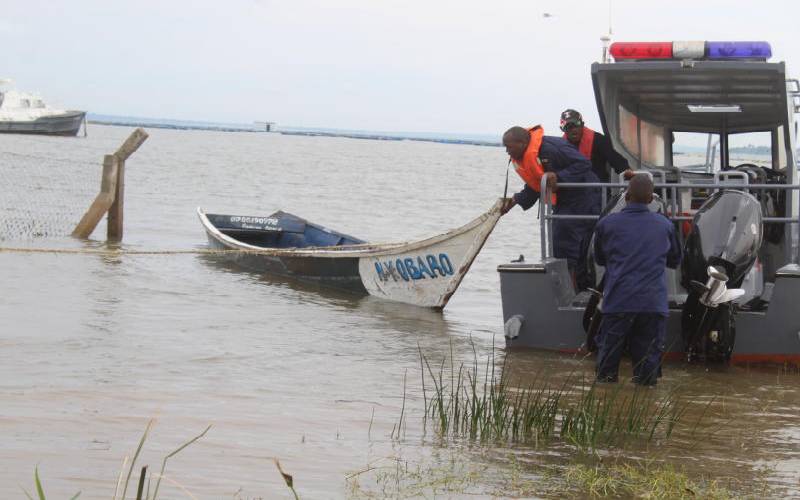×
The Standard e-Paper
Join Thousands Daily

Kenya Coast Guard Service officials search for the bodies of six people who drowned after their boat capsized in Lake Victoria on October 9, 2020. [Ignatius Odanga, Standard]
The coxswain engages the gear sending the engine roaring furiously as it cruises past Sirigombe Island headed to Mageta Island.







